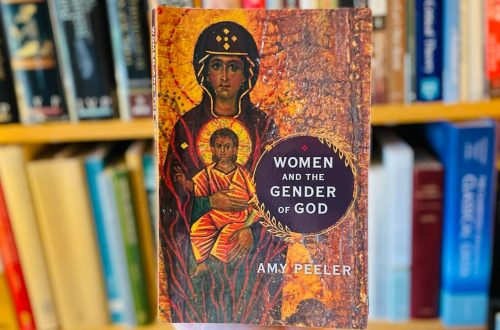 A very important book hit the shelves recently, and many readers will want to make a note of this one. It’s titled Kingdom through Covenant by Peter Gentry and Steve Wellum. The book argues for a perspective called progressive covenantalism—a mediating view between dispensationalism and covenant theology. This is a massive book (848 pages to be exact) on a critical subject matter, and it is likely to ruffle the feathers on both sides of this controversy.
A very important book hit the shelves recently, and many readers will want to make a note of this one. It’s titled Kingdom through Covenant by Peter Gentry and Steve Wellum. The book argues for a perspective called progressive covenantalism—a mediating view between dispensationalism and covenant theology. This is a massive book (848 pages to be exact) on a critical subject matter, and it is likely to ruffle the feathers on both sides of this controversy.
Matt Smethurst snagged an interview with the authors, and it is actually really good. I found this particular exchange to be ironic yet illuminating:
Smethurst: It is interesting and a bit ironic, as you observe, that both dispensational and covenant theology employ a similar hermeneutic in regard to the Abrahamic covenant. What do you mean?
Authors: We first noticed this irony in thinking through the hermeneutical differences between dispensational (DT) and covenant theology (CT). DT often charges CT with reading the New Testament (NT) back on the Old Testament (OT) without doing justice to specific unconditional promises of the OT. So, for example, CT often claims that the land promise to Israel was conditional and thus forfeited by Israel’s disobedience, and, further, that it’s typological in the sense that it’s fulfilled in the new creation—not as a specific piece of real estate to Israel in the millennial age. Part of the biblical warrant for this view is that the NT doesn’t emphasize the land promise as DT claims, but instead stresses the dawning of the new creation in Christ. In response, DT contends the land promise is not typological. Instead, it is an unconditional promise given to Abraham and his seed that continues throughout redemptive history in exactly the same way as it’s given in the OT. DT stresses that we must not read the NT back on the OT; the unconditional promise of the Abrahamic covenant stands unless specifically abrogated in the NT.
Yet, ironically, even though DT charges CT with neglecting the OT at this point, CT utilizes the exact same argument, albeit for a different aspect of the Abrahamic covenant. When CT defends their view of the nature of the church as a mixed community, and specifically the link between circumcision and baptism that grounds their defense of paedobaptism, they charge credobaptists with neglecting the unity of the covenant of grace and reading the NT back on the OT. Regardless of the credobaptist’s argument that Christian baptism does not signify exactly the same thing as circumcision, and that baptism is only reserved for those who have been united with Christ and have entered into new covenant realities such as regeneration, justification, and so on, CT charges credobaptists with reading the NT back on the OT and failing to do justice to the unconditional nature of the Abrahamic covenant as found in the genealogical principle—“to you and your children”—which remains unchanged across the biblical covenants. On their own unique points, then, DT and CT use the same hermeneutic in how they understand the relationship between the Abrahamic and new covenant in God’s overall plan.
In November, the biblical theology section of the Evangelical Theological Society will be discussing Wellum and Gentry’s Kingdom through Covenant as well as Jim Hamilton’s God’s Glory in Salvation through Judgment. Stephen Dempster will be moderating the panel. If any of you theologues are going to be near Milwaukee, Wisconsin on November 15, you might want to stop by for this one.




3 Comments
Matt Lantz
Thanks for your continued attention to this volume. I’m unwilling to pick up the book simply because of its length, so I’ve appreciated your updates on the discussions surrounding the book. Looking forward to your review if you ever decide to read it.
Would you mind giving a brief background on where Gentry and Wellum come from theologically? Are they from a CT heritage or a DT one?
Thanks again for your blog, too. One of my favorites!
Bentley Crawford
Denny, thanks for highlighting this! Sweet cover! The cover they published with was different than that one… Someone must have had a pre-pub copy!
Jonathan David Anderson
Unfortunately, this book is receiving more attention then it should. I am 600 pages into the book, and the authors have yet to prove their case. The only people who are going to love and recommend this book are those already convinced, everyone else will see that they don’t deal with the text (even when they quote them in full in the book).